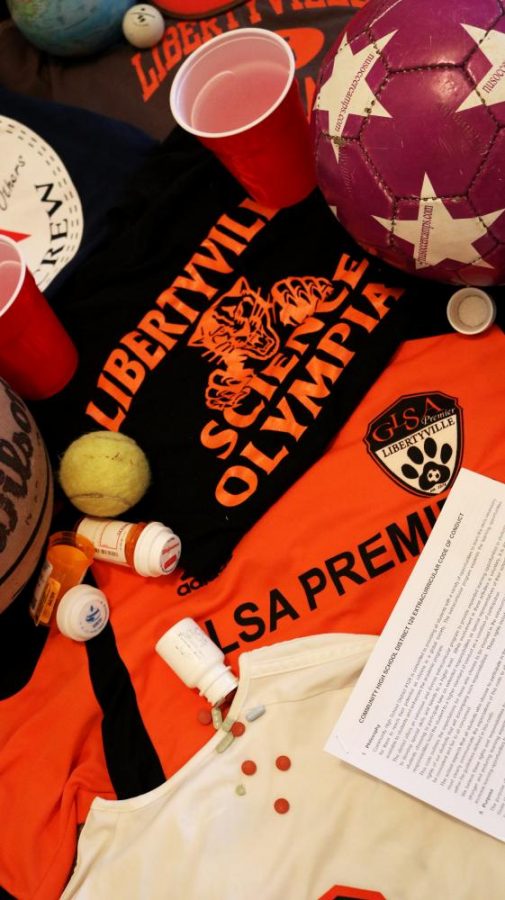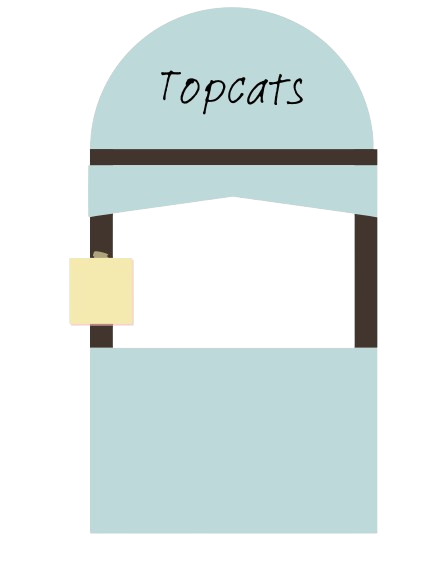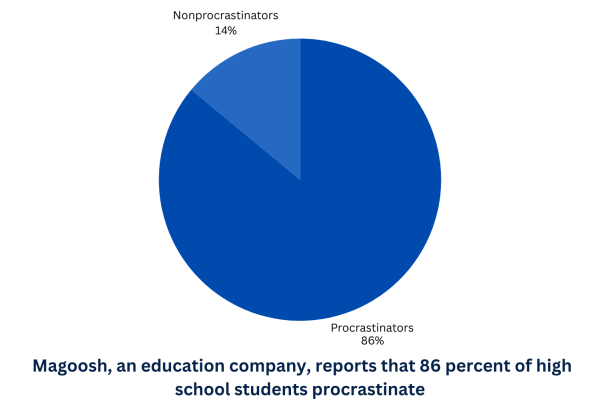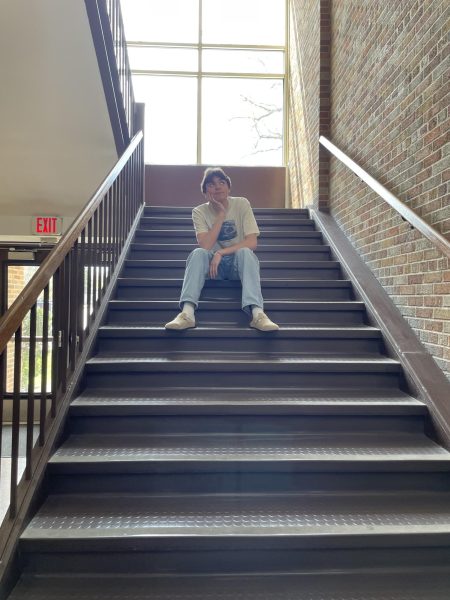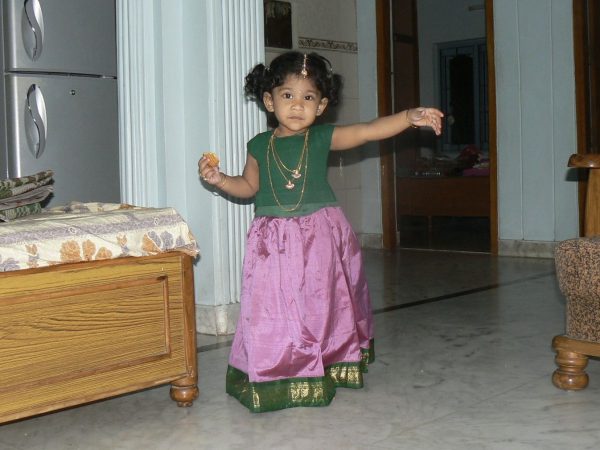The inconsistent code
The DOI staff feels that the Code needs to be revised so that the consequences are equal among all organizations and sports at LHS. As there is currently vague wording, there is more room for discrepancies related to punishments implemented by the Code.
Libertyville High School’s extracurricular opportunities uphold leaders and members to numerous expectations and responsibilities. Yet there’s one expectation that holds an inconsistent precedence over the rest: The District 128 Code of Conduct.
In Drops of Ink’s September issue, our staff expressed its views on how student leaders should act both in and out of school settings and especially with their liabilities pertaining to the Code of Conduct. In this Staff Editorial, we want to express our views on inconsistencies in the Code itself and changes that it could benefit from.
Everyone in LHS knows the basic responsibilities of the Code: if you’re in an activity, you’re expected to remain alcohol- and drug-free, and promote the same to your peers. Even students who aren’t actively participating in extracurriculars feel those responsibilities. As written, students participating in any extracurriculars are directed to abstain from any illegal drug use, alcohol use and unlawful or inappropriate behavior. It’s a morally sound code, shining light on how students should act, especially when holding influential leadership positions.
There are unwritten social expectations on how each student, especially each student leader, should present themselves. It makes sense that the students who choose to participate in the diverse and privileged opportunities offered at LHS are then held to a higher example with higher consequences. Yet, as our staff read through the Code, we realized that the gray areas are more muddled than expected. The rules and regulations are not as clear as they need to be.
The Code contains vague wording, which allows for each misconduct to “depend on the situation,” thus creating differing interpretations. As our staff expressed, this leads to irregular or possibly contradictory punishments that are often not applied equally among students who have been coded.
In a Code that applies to thousands of D128 students every day, these unequal coding standards need to be fixed to properly enforce the regulations of the Code itself. It would be more effective if it held each punishment in each extracurricular activity to the same specified standard, such as equal suspension time in athletics as in theater for the same act of misconduct. The majority of our staff agreed this could still allow for open interpretation but more consistency between the departments and their applied punishments.
However, some of our staff members pointed out that punishments specified within the Code are mainly centered around suspension, which may not be most beneficial. It was argued that suspension could discourage healthy participation in any extracurriculars, or even negatively affect other members who are a part of the activity — such as team sports. The idea of reparative justice was then mentioned by staff members — a concept that allows for the administrators, advisors and, most importantly, fellow members of the extracurriculars to determine if the misconduct of the student is forgivable. If the group as a whole decides that the actions are forgivable, they accept the student to continue in the activities at the discretion of the administrators. Some argued this would be a healthier and more productive alternative to suspension.
Nevertheless, when taking a step back from the general punishments in the Code of Conduct, the question of when and where the Code itself applies still remains. As the current D128 Code states: “These rules apply to the school-related conduct of all students involved in extracurricular activities, on or off campus, 24 hours a day, seven days a week, throughout the entire calendar year, including weekends and summer.” According to D128’s definition of school-related conduct, this policy means that any action of a D128 student who has signed the Code is legally held to the standards of the Code from the moment they sign it until the moment they graduate or discontinue their enrollment within District 128’s education system.
If that policy in the Code is going to be addressed, it needs to be truly imposed. This is where our staff noticed the most disparity — students getting in trouble with law enforcement outside of school settings or off school property are not being held accountable with what the Code states. If we fail to fairly enforce all of the policies of the Code, how can we properly ensure that administrators, advisors and students themselves are following all of the expectations to begin with?
And these aren’t the only exceptions that are glossed over. The activity the student is participating in when they commit the misconduct is too often prioritized over the misconduct itself. For example, if a star player is caught smoking a week before their sport’s state match, they are not always held to the consequences of their actions. It’s as though with great power comes great responsibility — except when their great power is pertinent to their upcoming game.
Of course, not all coaches and administrators turn a blind eye to a misconduct on their team, and not all team members break the Code either. But the fact this happens at all is what needs to change. The moment a misconduct is justified just so the student can perform their star role in the extracurricular is the moment that extracurriculars are then held over the responsibilities of everyone in District 128.
With responsibilities that follow students throughout their entire high school path, the Code itself needs to be presented more often and made clearer to the students in D128. It distinctly states in the Code of Conduct that all advisors and administrators of the extracurriculars must go over the Code and have members sign it no later than the first meeting.
Yet, our staff members agreed that they had hardly ever even seen the Code, let alone been directed to sign it for every club and activity they had attended. Our whole staff read through the Code of Conduct, which not many students have ever read, let alone even been offered the chance to. It’s well-known that the Code is on the district’s website, but with expectations that hold students to such important standards, it needs to be fairly presented through all of the extracurriculars our district has to offer. Being presented and directed to sign the code should not depend on if the advisor in charge of the extracurricular thinks it’s important or not. However, this is the case today, and thus allows for the Code to easily becomes less concrete and notably inconsistent.
At the end of the day, the purpose of the Code of Conduct is to hold all involved students to specific and respectable standards. The Code, of course, does not go against any aspects of Illinois School Law nor rights granted by the U.S. Constitution. With the hundreds of different activities running in and out of LHS doors every day, the Code is designed to maintain the proper safety and procedure of our school. And as our staff expressed, the vagueness of the Code has always been there and has always been something most students don’t entirely understand.
However, just because it has always been that way does not mean it should always stay that way. Fair and just punishment cannot be established one vague word at a time.



